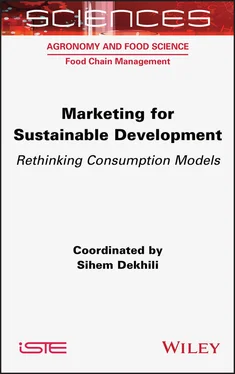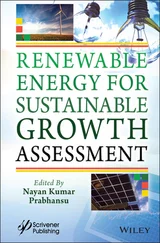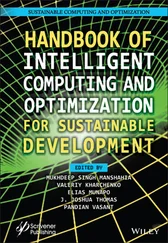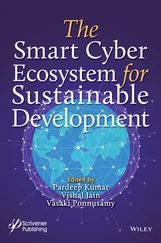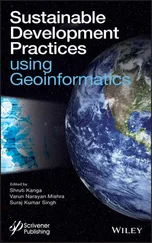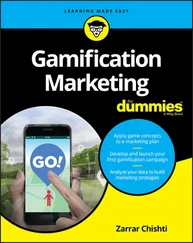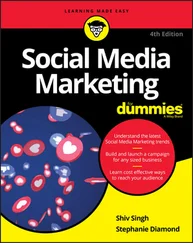Food Chain Management , Subject Head – Jean-Marc Ferrandi
Marketing for Sustainable Development
Rethinking Consumption Models
Coordinated by
Sihem Dekhili

First published 2021 in Great Britain and the United States by ISTE Ltd and John Wiley & Sons, Inc.
Apart from any fair dealing for the purposes of research or private study, or criticism or review, as permitted under the Copyright, Designs and Patents Act 1988, this publication may only be reproduced, stored or transmitted, in any form or by any means, with the prior permission in writing of the publishers, or in the case of reprographic reproduction in accordance with the terms and licenses issued by the CLA. Enquiries concerning reproduction outside these terms should be sent to the publishers at the undermentioned address:
ISTE Ltd
27-37 St George’s Road
London SW19 4EU
UK
www.iste.co.uk
John Wiley & Sons, Inc.
111 River Street
Hoboken, NJ 07030
USA
www.wiley.com
© ISTE Ltd 2021
The rights of Sihem Dekhili to be identified as the author of this work have been asserted by her in accordance with the Copyright, Designs and Patents Act 1988.
Library of Congress Control Number: 2021940271
British Library Cataloguing-in-Publication Data
A CIP record for this book is available from the British Library
ISBN 978-1-78945-036-1
ERC code:
LS9 Applied Life Sciences, Biotechnology, and Molecular and Biosystems Engineering
LS9_5 Food sciences (including food technology, food safety, nutrition)
SH2 Institutions, Values, Environment and Space
SH2_6 Sustainability sciences, environment and resources
SH1 Individuals, Markets and Organisations
SH1_10 Management; marketing; organisational behaviour; operations management
John T HØGERSEN
Department of Management, Aarhus University, Denmark
Since the Industrial Revolution, humanity has been extremely successful in combating diseases, producing a sufficient supply of food and other necessities and adapting its environments to its needs. However, this success has a downside. The boom in human production and consumption has led to planetary boundaries for safe operating spaces being crossed in a range of areas, including climate change, biosphere integrity, biogeochemical flows and land-system change. Humanity is now so plentiful and powerful that our activities impact basic planetary functions. This development is so radical that scientists speak about a new geological epoch: the Anthropocene. Therefore, humans, for their own sake, must become stewards of the planet and get us back into a safe operating space, while maintaining acceptable ways of life, as expressed, for example, in the UN’s Sustainable Development Goals. This is a major task and it is the government’s responsibility to organize and regulate it. However, governments will not be able to prevail without the support and active engagement of companies and the civil society as both consumers and citizens.
Engaged citizens are a valuable source of knowledge and ideas for new norms and regulations that are adapted to the national and local context. An informed citizenry is also a prerequisite for achieving the necessary acceptance and support for new regulations. In addition, changes in consumer behavior are a prerequisite for many transformations, including the move from fossil to renewable energy, from a linear to a circular economy, and to a more plant-based diet in industrialized countries.
The scientific understanding of global challenges and technical solutions has increased tremendously in recent decades, but knowledge and understanding of “the demand side” is lagging behind. We need more knowledge and understanding of citizen-consumers’ concerns, limitations, goals and wants with regards to new and sustainable products, services and wider solutions, as part of a wide range of sustainability transformations. We also need more knowledge of how to gain the acceptance, support and engagement of the public, as citizens and consumers with diverse values, needs, wants, resources and contexts.
For example, in developed countries, private households are responsible for about a third of wasted food and about two thirds of plastic waste. Packaging waste, most of which is discarded by households, creates significant problems in nature. Therefore, consumers need to be actively engaged in closing the loops for materials that pass through private households in huge volumes for the radical and urgently-needed transformation from a linear to a circular economic model to succeed. Marketing, as a discipline and practice, has accumulated experiences and insights and developed effective tools to strengthen consumer acceptance of recycled products or products made using recycled materials, and to increase the amount and quality of waste materials that are reused or recycled from households.
This book coordinated by Sihem Dekhili is a welcome contribution to advancing our knowledge and understanding of the role of the demand side for sustainable development and especially about how to mobilize the tools, techniques and insights of marketing for sustainable development. It offers a range of fresh perspectives on sustainability transformations in the modern digital era, drawing on the creativity and skills of a broad group of researchers. Like marketing in general, its main focus is on individuals as consumers and on creating value for all parties in an exchange as a means to achieve organizational and societal goals. This customer-centric perspective of marketing may be the most important contribution to speeding up sustainability transformations. However, marketing is not limited to commercial exchanges and viewing people as individual consumers. Marketing has proven to be an effective means for attaining massive changes in behaviors and lifestyles, including making citizens aware of the need for sustainability transformations in order to accept the required regulations. It is important to ensure consumers are well-informed and understand and trust sustainable products, services and solutions, both to convince them that it is worth their effort and help them to adopt more sustainable goods and practices. Especially, marketing has refined effective tools to help consumers make sustainable choices in supermarkets, including credible sustainability labeling.
Mobilizing consumers and engaging them in sustainability transformations requires a deep understanding of their diversity, and the ambiguity and conflicts related to their goals. Some consumers resist the conventional market system and experiment with various forms of simpler, sufficiency-oriented lifestyles. Others make an effort to choose environmentally-friendly products and services. Still others are environmentally concerned, but feel unable to do anything because they feel that they lack credible environmental information or believe that the tradeoffs are insurmountable. It is therefore important to differentiate between people with different needs, wants, and abilities and to adapt regulation, education, communication and solutions accordingly. More than any other discipline, marketing has developed insights and effective tools for the segmentation and targeting of consumers with different needs, wants, and abilities.
This book is a much-needed contribution to the understanding of the demand side in sustainability transformations and especially of marketing as a force for change towards sustainable development goals. It combines a solid foundation in the accumulated insights of marketing with an appreciation of the specific challenges and opportunities of the current age, including digitalization, mobile applications, machine-to-machine communication and the Internet of Things. These new technologies are rapidly changing our lives and when they are used well, they offer new opportunities for supporting responsible consumer behavior and sustainability transformations. This makes this book a useful resource for marketing scholars and practitioners alike; indeed for everyone who is engaged in the sustainable transformation of society, in companies, politics, NGOs and the civil society.
Читать дальше
